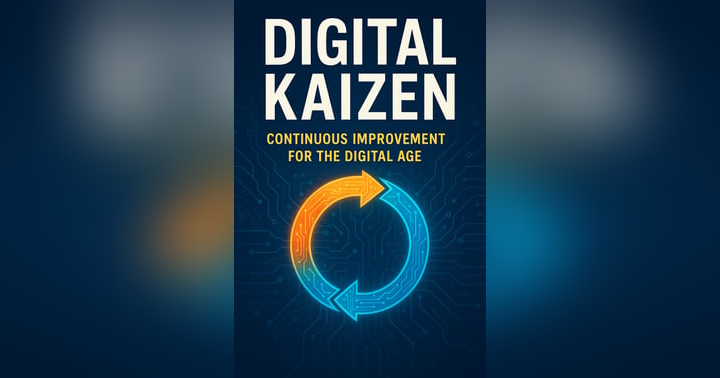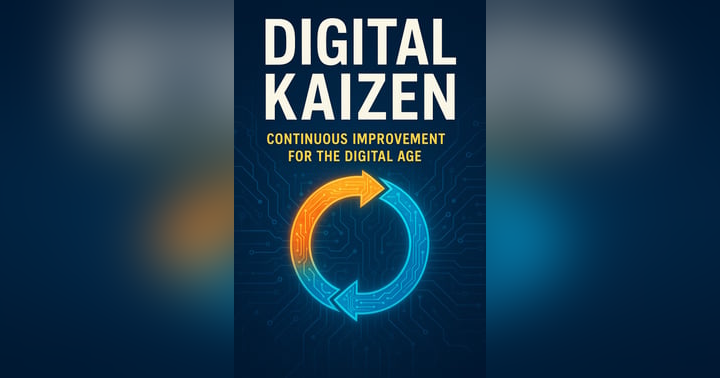When Perfect Audio Becomes Your Worst Enemy

"The recording sounded perfect. Too perfect," Whitney Joy Smith tells me as we discuss the evolving landscape of digital deception.
As the founder and CEO of The Smith Investigation Agency Inc., Whitney has spent over two decades reading people, detecting deception, and uncovering truth. When I asked her about the moment she realized audio recordings could be fabricated with startling accuracy, her response was immediate: "Everything changed."
"We've moved from 'recordings don't lie' to 'recordings might lie,'" Whitney explains. "That shift changes everything about how we verify truth."
As someone deeply involved in investigations where trust forms the bedrock of every case, Whitney has watched this technology evolve from a cool demonstration to a fundamental threat to how investigators authenticate evidence and testimony.
The New Reality of Voice Deception
Deepfake fraudulent identity verification attempts have surged by 3,000% over the past year. The numbers tell a story I see playing out in real investigations.
Fraudsters can now replicate a person's voice from just three seconds of audio found in a video someone posted online. They identify friends and family members, then use the AI-cloned voice to stage phone calls asking for money.
Consider the recent case where British engineering company Arup lost over $25 million to deepfake fraud. During a video conference call with deepfakes impersonating the CFO and other employees, staff made 15 transactions totaling nearly $26 million to Hong Kong bank accounts.
The sophistication isn't theoretical anymore. It's operational.
How We Authenticate Voice Evidence Now
When I ask Whitney how her agency now handles voice recordings as evidence, she describes a strict process that's evolved significantly in recent years.
"First, I always look for corroborating evidence," Whitney explains. "A voice recording alone rarely forms a solid case anymore. I seek additional sources like video footage, written documentation, or witness testimonies that verify the context and legitimacy of the recording."
Her agency employs forensic audio analysis tools that detect signs of tampering—changes in pitch, timing, or background noise inconsistencies. These tools help distinguish genuine recordings from fabricated ones.
"But here's what I've learned," Whitney tells me: "detection tools are always playing catch-up with AI voice generation. The technology improves faster than our ability to spot it."
Chain of custody documentation becomes crucial in Whitney's process. How was the recording obtained? Who handled it? When? This ensures evidence remains credible and admissible in legal contexts.
The Human Advantage in an AI World
Whitney points out that AI voice generation has a fascinating weakness: "It's almost too perfect."
She gives me a vivid example: "Think about those viral social media videos of 20-foot sharks jumping out of water or babies having conversations. They look incredibly convincing, but something feels off."
"If a person were behind that camera with a massive shark just feet away, they would react," Whitney explains. "The camera would shake. They might yell. Their body would move in fear, excitement, or surprise."
"AI-generated content shows events like cinematic productions. Eerily smooth. That's the giveaway."
In her investigative work, Whitney has learned to pay attention to what should be there but isn't. "Those moments when someone usually punctual suddenly arrives late. When a person who follows specific routines suddenly breaks them."
"People are unpredictable," she tells me. "They don't always act as expected. Those inconsistencies in human behavior often reveal truth."
"Micro-expressions don't lie," Whitney emphasizes. "A fleeting glance, a shift in posture, a slight change in tone. These small, often unconscious signs reveal true feelings or intentions. They're natural parts of human interaction that remain very hard for AI to mimic authentically."
When Technology Can't Give Certainty
Whitney has encountered cases where she suspected a voice recording was AI-generated but couldn't definitively prove it. "The uncertainty can be frustrating, but it's not insurmountable," she tells me.
"Clients often expect investigators to deal in facts and certainties. The reality is much more nuanced."
When she can't definitively prove a recording is fake, but her trained ear tells her something's off, Whitney provides an assessment based on professional experience. "I indicate whether I believe the recording is legitimate or not, but I can't offer absolute guarantees."
"I always emphasize the limitations of analysis, particularly with voice recordings that may require specialized skill sets," Whitney explains. "When situations demand further verification, I recommend clients work with audio and visual specialists who can conduct deeper forensic analysis."
This approach allows her to remain professional and ethical while ensuring clients have access to all available resources for evidence verification.
"Uncertainty is part of the job," Whitney reflects. "That's something most people don't expect from investigators."
The Threat of Human Self-Censorship
When I push Whitney on what keeps her up at night, she raises a fascinating point: "What if the real threat isn't AI getting better at mimicking humans, but humans starting to behave more like AI?"
"With AI becoming more integrated into daily life, people have begun adjusting their behavior. Sometimes unconsciously," Whitney observes. "We see this in how people use AI to handle tasks they'd typically do themselves, rather than relying on problem-solving skills."
"People are filtering themselves more. Becoming hyper-aware of how they're perceived. Self-censoring in response to the possibility of being recorded or analyzed. It's like editing themselves in real-time."
Whitney warns this could lead to human behavior becoming less organic and more programmed. "People acting as though they're performing for an unseen audience, suppressing genuine emotions or reactions for fear of being misinterpreted or manipulated."
"An environment where authenticity becomes harder to find."
Protecting Yourself in the Voice Deception Era
Whitney's advice for ordinary people is straightforward: "Be you, live your life, and don't rely solely on AI or other tools to guide day-to-day decisions."
"Technology is a helpful assistant. It shouldn't replace real human interactions that keep us grounded."
"Remain authentic," Whitney emphasizes. "Don't let the increasing presence of AI and surveillance make you feel like you have to perform or behave in ways that aren't true to yourself."
"Be mindful of how much you rely on technology. Do things for yourself whenever possible. This prevents becoming too dependent on tools that can sometimes distort reality."
Whitney particularly advocates for spending time in nature. "Disconnect from screens, TV, and digital devices. Nature has a unique ability to help us relax, clear our minds, and regain perspective."
"Nature is real, unfiltered, and deeply human. It's a way to stay true to yourself in an increasingly digitized world."
When it comes to voice manipulation scams and digital deception, Whitney's advice is clear: "If you can't verify something on your own, reach out to specialists. Don't try to handle it alone."
Programming AI with a Justice Mindset
Looking ahead five years, Whitney believes the biggest challenge for investigators will be the sheer rise of scams and fraudulent activities. "AI makes it easier for scammers to appear more legitimate than ever."
"AI helps them write more convincingly, mimic voices, and create professional-looking documents and communications. The sophistication means we'll have to be more vigilant, thorough, and creative in our investigations."
But here's what gives Whitney hope: "The potential for AI to be used in the pursuit of justice."
"I envision a future where AI evolves to become a tool for good. Where it helps identify scams, verifies information, and flags potential frauds in real time."
"Imagine an AI system that recognizes scam attempts and instantly cross-checks patterns, histories, and documents against databases. An AI that alerts investigators the moment it detects deception."
"If we can start programming AI with a justice mindset," Whitney explains, "it could become a powerful ally in the fight against deception. It could help ensure that truth prevails."
"The future isn't about humans versus AI. It's about choosing which values we embed in these powerful tools."
While challenges are growing, Whitney remains optimistic: "As technology evolves, so will our ability to adapt and use those same tools in the pursuit of truth."
"Human intuition and professional experience will remain indispensable, even in this high-tech age."
Whitney's final thoughts are both hopeful and grounded: "There will always be something that gives away the truth. A genuine emotional response, a moment of vulnerability, a slip-up in behavior, or a tiny micro-expression that AI can't completely replicate."
"AI can replicate behaviors, but it can't fully capture the depth and complexity of human experience, especially when we don't know we're being observed."
"There will always be space for raw, unfiltered truth, even in a world of AI."
"Because humans will always be human."
Chris Hensley is a financial advisor, podcast host, and creator of the upcoming book Digital Kaizen: Small Loops, Big Shifts in an AI World. With over two decades of experience guiding clients through complex financial decisions, Chris now blends his expertise in retirement planning with cutting-edge tools like AI, voice-first thinking, and behavioral science. Digital Kaizen is a philosophy for those who want to grow sustainably in a world that moves fast—combining human wisdom, technology, and tiny, honest loops of improvement. This article is a preview of the ideas explored in Digital Kaizen, due out later this year.👉 Want early access to tools and insights from Digital Kaizen? https://digital-kaizen-book.kit.com/6a16de43b8
Grab the free Digital Kaizen Starter Guide and explore how to build better systems for thinking, learning, and working in an AI world.
Whitney Joy Smith is the founder and CEO of The Smith Investigation Agency Inc., one of Canada’s leading private investigative firms. With over 20 years of experience uncovering fraud, deception, and hidden truths, Whitney specializes in surveillance, corporate investigations, and digital forensics. Her work bridges traditional investigative intuition with modern technological awareness, making her a trusted expert in an age where truth is increasingly difficult to verify.






